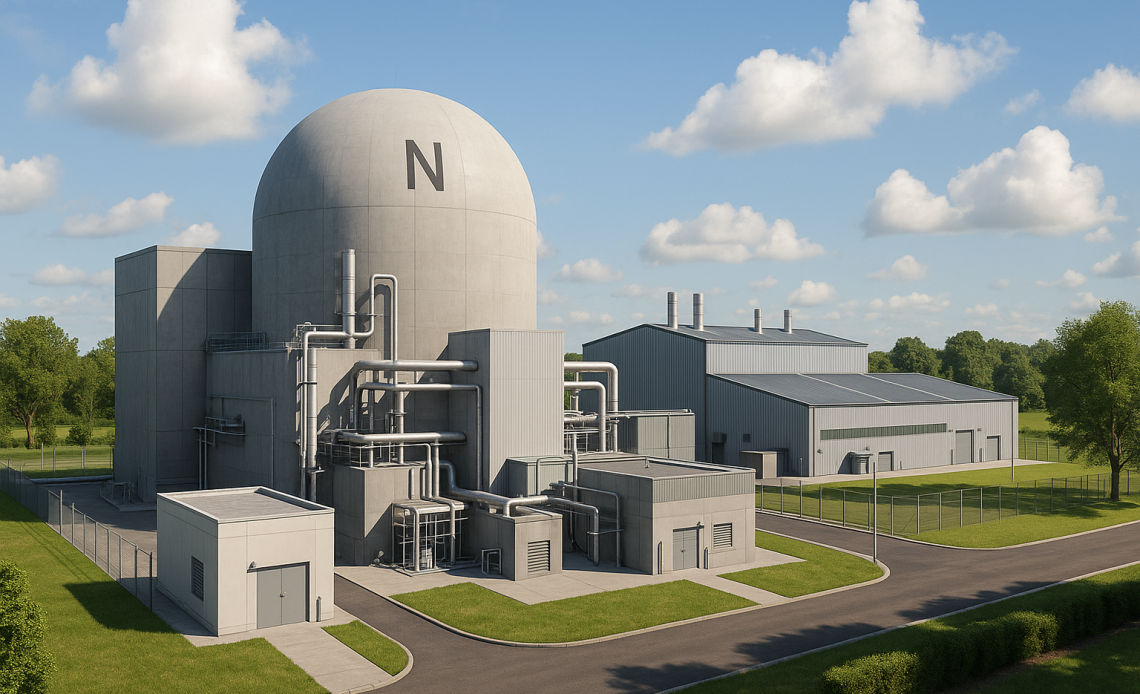
TerraPower, the nuclear innovation company founded by Bill Gates, reports Reuters, has submitted its Natrium reactor design for regulatory approval in Britain, marking its first step into international markets.
The move signals the UK’s emergence as a testing ground for advanced clean energy technologies as it works to decarbonise its grid and reduce reliance on fossil fuels.
The company’s application to the UK’s Generic Design Assessment (GDA) process is the initial regulatory stage required before the reactor can be deployed.
It follows TerraPower’s successful progress through regulatory hurdles in the United States, where construction of the first Natrium plant is already underway.
Reactor design combines flexibility with renewables integration
At the heart of TerraPower’s proposal is the Natrium reactor — a 345-megawatt sodium-cooled fast reactor paired with a molten salt-based energy storage system.
The system can increase its output to 500 megawatts for over five and a half hours when additional power is required, offering the kind of flexibility that complements intermittent renewable energy sources such as wind and solar.
This dual-function design allows the reactor not only to generate consistent baseload electricity but also to respond quickly to fluctuations in energy demand, a key requirement for modern power grids transitioning away from fossil fuels.
TerraPower said this configuration supports seamless integration with renewables, potentially improving grid stability while lowering emissions.
Collaboration with KBR aims to identify UK deployment sites
To advance its UK plans, TerraPower is partnering with US engineering firm KBR to identify potential sites suitable for building Natrium reactors.
The collaboration aims to leverage KBR’s experience in energy infrastructure and project management while ensuring that selected sites meet safety, environmental, and grid-connectivity standards.
The UK government’s interest in small modular reactors (SMRs) has grown significantly as part of its wider energy diversification strategy.
Authorities view nuclear power as a crucial component of long-term decarbonisation targets, capable of generating reliable energy with minimal carbon output.
TerraPower’s participation broadens the field of contenders in the UK’s SMR landscape, alongside existing domestic and international developers.
Opportunities and challenges for Britain’s nuclear ambitions
Britain’s goal to expand its nuclear capacity aligns with its ambition to achieve net-zero emissions by 2050.
The inclusion of advanced designs such as TerraPower’s highlights a shift toward smaller, faster-to-deploy reactors capable of supplementing renewable generation.
However, several challenges remain. Financing large-scale nuclear projects continues to be complex due to high capital costs and long construction timelines.
Political scrutiny and public resistance also persist, particularly around safety and waste-management issues. Technical challenges — including supply-chain readiness and workforce training — could further delay deployment.
Despite these obstacles, the potential for energy diversification and industrial partnerships could make Britain an attractive location for companies like TerraPower.
The country’s regulatory infrastructure, experienced nuclear workforce, and government-backed interest in advanced reactors provide a pathway for accelerating nuclear innovation within its borders.
TerraPower’s global ambitions expand beyond the US
TerraPower’s entry into the UK marks a broader strategic push to export American nuclear innovation globally.
With its first Natrium plant under construction in the US, the company aims to prove that advanced nuclear technology can provide scalable, low-carbon power compatible with renewable systems.
The UK’s GDA approval would allow the technology to be licensed in other countries more efficiently, potentially setting a precedent for cross-border regulatory cooperation in next-generation nuclear projects.
As governments worldwide seek reliable alternatives to fossil fuels, TerraPower’s design could play a role in reshaping how nations approach clean-energy diversification and grid stability.
The post TerraPower seeks UK entry as part of global clean energy shift appeared first on Invezz






